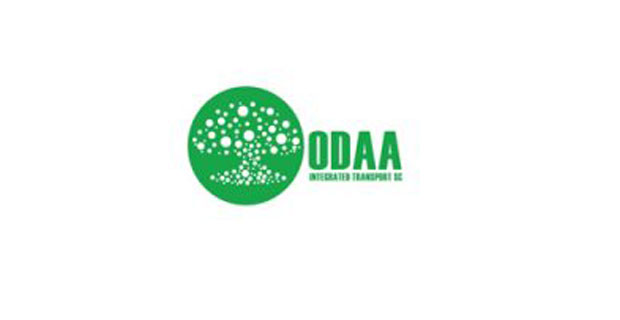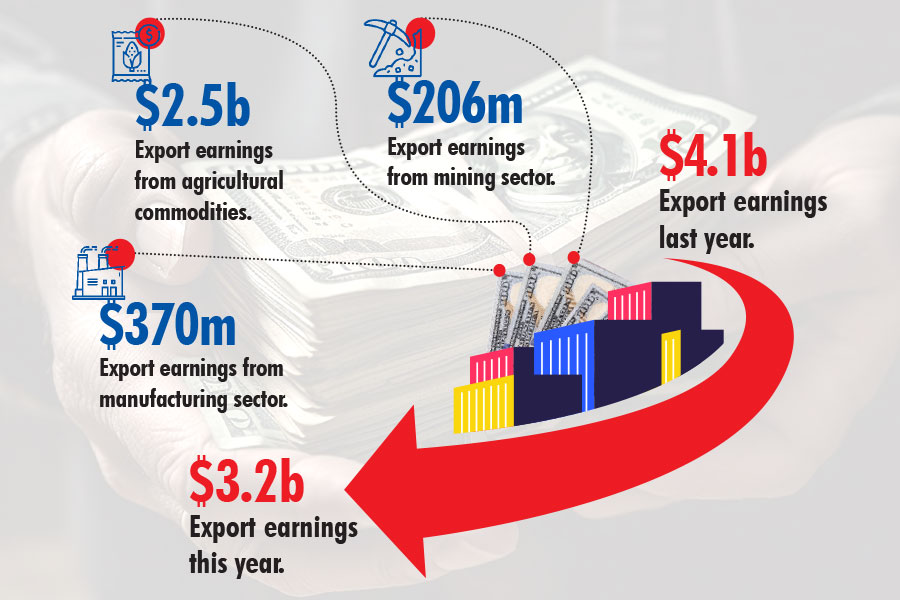
In-Picture | Oct 12,2025
Jun 8 , 2024
By Mekonnen Solomon
Ethiopia has long sought to diversify its export base, aspiring to secure new sources of foreign currency earnings and reduce its exposure to price volatilities that often plague international markets. Among its efforts, its policymakers have focused on inducing an industry in the value chain of ornamental and cut flowers since 1990. Over the last two decades, the floriculture industry has become a fast-growing export business, ranking just behind coffee in importance.
This growth is largely attributed to export incentive policies encouraging private sector involvement in the flower export business. Incentives include easy access to rural and urban agricultural land at nominal lease rates, income tax exemptions for up to five years, and duty-free importation of equipment, vehicles, building materials, and irrigation systems. Policymakers have facilitated easy access to loans and other public utilities, which attracted around 120 investors who ventured into the floriculture sector over the past three decades.
However, despite these substantial policy incentives, several flower exporters have increasingly turned their attention to the domestic market. In Addis Abeba and other major towns across the country, flower gift shops have proliferated, offering vibrant markets for floral arrangements. These shops primarily source their flowers from commercial farms in clusters such as Holleta, Bishoftu (Debrezeit), Sebeta, Ejersa, Welisso, Wolkite, Sendafa, and Bahir Dar.
Interestingly, some flower-producing and exporting farms have begun to shift from their initial focus on foreign markets to domestic clients. After taking advantage of export incentives, some farms now supply fruits and vegetable seedlings to the domestic market, including avocado, onion, garlic, and tomato seeds and seedlings. The trend has raised concerns about the potential implications for agricultural diversification and the effectiveness of its export incentives. Critics argue this resource diversion represents a "game of missing the bull’s-eye."
These concerns were voiced at a recent conference held in Kigali, Rwanda, by Mulu Gebreeyesus (PhD), a senior research fellow at the Ethiopian Development Research Institute (EDRI). Mulu observed that despite various export incentives and support programs, companies have become increasingly interested in the domestic rather than the export market.
Unlike coffee, Ethiopia's law does not limit the sale of export-quality flowers to the export market. Neither does it tightly control the sales ratio for export and domestic purposes. This regulatory gap has led to a pressing question.
How long can the government continue incentivising flower exports while growers increasingly favour the local market without legal restrictions?
Flower producers and exporters often claim they have no desire to supply flowers to the local market, considering it akin to "throwing good money after bad." Some commercial flower farm managers argue that the flowers supplied to the local market are of inferior quality, non-exportable, with short vase lives and poor grades, often in low volumes that would otherwise be disposed of or composted. Yet, the rapid expansion of flower gift shops and their vibrant business suggests otherwise.
Debates also rage over whether the flower export industry is in decline. Some argue that growing domestic demand and the corresponding price rewards local buyers offer to make the domestic market more attractive for growers. Undoubtedly, the domestic flower market is becoming increasingly lucrative. Contrarily, the shift to the local market could be due to the inefficiency or inability of farms to produce and supply high-quality flowers to the global market.
This inefficiency manifests in the failure to diversify into new markets, identify the right customers and their needs, and maintain good communication with customers. It could also result from limitations in managing product timing effectively, a lack of market information, and limited knowledge about different marketing venues. Poor pricing strategies and a lag in adopting digital marketing and e-commerce are also cited factors.
On a macroeconomic level, several arguments are made to debunk the negative correlation between domestic demand and exports. When domestic demand grows, the associated inflationary pressures can erode the price competitiveness of exports. On the supply side, the availability of resources for the exporting sector fluctuates with the business cycle, affecting export performance. Investments tend to flow towards the most dynamic domestic or foreign market.
Export performance is often modelled as a function of foreign demand for a country’s products and price competitiveness. It is proxied by the evolution of imports in trade partners, while the real exchange rate captures a relative price advantage over competitors. Domestic conditions also play a crucial role; high domestic demand pressure can push firms to operate at full capacity, limiting their ability to meet external demand in the short run. Conversely, firms can allocate more resources to exports during a domestic downturn to compensate for declining domestic sales.
Flowers, available in a wide range of colours, shapes, and sizes, are now a common sight in gift shops in Addis Abeba. They exhibit policymakers' dilemma over a crucial decision about the flower industry. The choice between tolerating sales in the domestic markets or focusing on the export sector is no doubt a delicate one, akin to choosing between joy and sustenance. When deciding between these alternatives, it is essential to consider factors such as opportunity costs, potential rewards, expenditures, and cumulative wealth.
However, without timely intervention, the funnel leakage in the flower supply chain could result in missed opportunities for the country's economy.
PUBLISHED ON
Jun 08,2024 [ VOL
25 , NO
1258]


Commentaries | Apr 22,2022

Radar | May 11,2024

Fortune News | Jun 15,2019

Editorial | Aug 20,2022

Fortune News | Jul 01,2023

Photo Gallery | 175991 Views | May 06,2019

Photo Gallery | 166205 Views | Apr 26,2019

Photo Gallery | 156629 Views | Oct 06,2021

My Opinion | 136865 Views | Aug 14,2021

Dec 22 , 2024 . By TIZITA SHEWAFERAW
Charged with transforming colossal state-owned enterprises into modern and competitiv...

Aug 18 , 2024 . By AKSAH ITALO
Although predictable Yonas Zerihun's job in the ride-hailing service is not immune to...

Jul 28 , 2024 . By TIZITA SHEWAFERAW
Unhabitual, perhaps too many, Samuel Gebreyohannes, 38, used to occasionally enjoy a couple of beers at breakfast. However, he recently swit...

Jul 13 , 2024 . By AKSAH ITALO
Investors who rely on tractors, trucks, and field vehicles for commuting, transporting commodities, and f...

Oct 18 , 2025
The political establishment, notably the ruling party and its top brass, has become p...

Oct 11 , 2025
Ladislas Farago, a roving Associated Press (AP) correspondent, arrived in Ethiopia in...

Oct 4 , 2025
Eyob Tekalegn (PhD) had been in the Governor's chair for only weeks when, on Septembe...

Sep 27 , 2025
Four years into an experiment with “shock therapy” in education, the national moo...

Oct 18 , 2025 . By NAHOM AYELE
In a sweeping reform that upends nearly a decade of uniform health insurance contribu...

A bill that could transform the nutritional state sits in a limbo, even as the countr...

Oct 18 , 2025 . By SURAFEL MULUGETA
A long-planned directive to curb carbon emissions from fossil-fuel-powered vehicles h...

Oct 18 , 2025 . By BEZAWIT HULUAGER
Transaction advisors working with companies that hold over a quarter of a billion Bir...